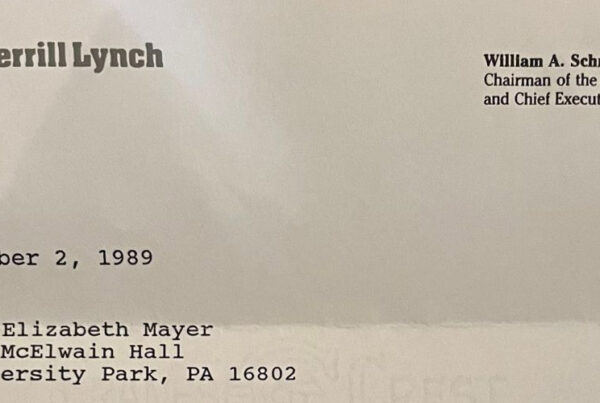
I’m having lunch before I give my “What Do You Do? 3 Steps to the Perfect Elevator Pitch” presentation to the Harvard Business School Alumni of the Washington, DC area (alumni site).
A 50-something woman, let’s call her Carol, sits next to me and says, “mind if I try out my elevator pitch on you?” With a big smile, I say “sure.”
Carol proceeds to say something to the effect, “I create computer software programs that use, update, and link complicated high order algorithms and learning pathways to improve the efficiency, throughput, and effectiveness of a company’s security systems.”
Her face then explodes into a Cheshire Cat ear-to-ear smile and says, “you didn’t understand that, right?” I nod affirmatively. Without missing a beat, Carol says, “good, I know that you are not a potential client.”
I paused a little and responded, “you are absolutely right. And with that elevator pitch, you have eliminated the other 50 plus people in the room as well. AND, you have stopped the other 50 plus people from helping to tell your story to others–that means no referrals.”
THAT MEANS NO REFERRALS
Her jaw metaphorically dropped to the ground. Carol had not thought about the potential impact or lack thereof of telling a simple, compelling, and memorable business story–your elevator pitch.
Complicated stories accelerate the ending of a conversation.
COMPLICATED STORIES USUALLY STOP CONVERSATIONS
Complicated stories accelerate the ending of a conversation. Complicated stories usually bring the conversation to a screeching halt. We have all witnessed an elevator pitch similar to Carol’s. And witnessed common responses such as “Oh, that’s nice.” And watched the all too common non-verbal body language response of simply walking away.
Everyone has an internal dialogue that says, “I’ll create my own story when yours is confusing.” Ensure people go “Wow, tell me more!” to your elevator pitch. How? Rehearse and test, test, test. A 10th grader or grandma, should and must be able to readily understand your story.
Everyone you come into contact with is a potential referral…someone who can help tell your business story, your elevator pitch to others.
A big thank you to the Harvard Business School Alumni for inviting me, especially Bob Rossi.
ADDITIONAL READING
- Reduce Complexity to Improve Audience Engagement
- The Personal Storyteller – 3 Tips to Improve Your Communication Skills
- The “What Do You Do?” Answer – A Key Tool in Your Sales Toolbox
- Talk at the 10th Grade Level – Simplify Your Communication
- Always Simplify Your Communication, Even if it is Rocket Science – The Saga with Pluto’s Name
Photography Source: DepositPhotos



